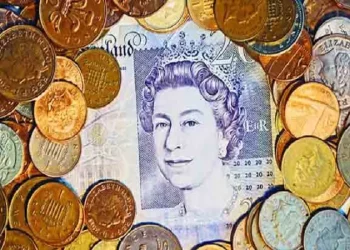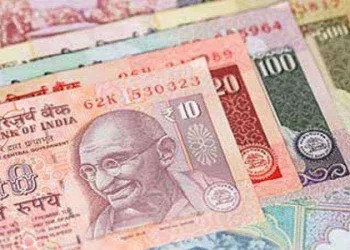Historical Trends of the USD/GBP Exchange Rate
Over the years, the USD/GBP exchange rate has exhibited significant fluctuations. Historically, the pound has had periods of both strength and weakness against the dollar. In the post – World War II era, the Bretton Woods system, which fixed exchange rates, initially provided some stability. However, after the breakdown of the Bretton Woods system in the early 1970s, exchange rates became more flexible, and the USD/GBP rate started to show greater volatility.
In the 1980s, the UK faced economic challenges such as high inflation and a struggling manufacturing sector, which led to a depreciation of the pound against the dollar. During the 1990s, as the UK economy underwent structural reforms and inflation was brought under control, the pound strengthened somewhat. In the 2000s, the global financial crisis had a profound impact on both currencies. The UK, with its large financial sector, was hit hard, and the pound depreciated sharply against the dollar.
In recent years, factors such as Brexit have added a new layer of complexity to the USD/GBP exchange rate. After the Brexit referendum in 2016, the pound experienced significant volatility, generally weakening against the dollar as the uncertainty surrounding the UK’s future trading relationships and economic stability increased.
Economic Factors Influencing the USD/GBP Exchange Rate
Interest Rates
Interest rates set by central banks play a crucial role in determining the exchange rate. The Federal Reserve in the US and the Bank of England in the UK are responsible for setting interest rates. When the interest rate in the US is higher than that in the UK, it makes US – denominated assets more attractive to investors. As a result, there is an increased demand for the US dollar, leading to an appreciation of the dollar relative to the pound. For instance, if the Federal Reserve raises interest rates, international investors may move their funds from the UK to the US to take advantage of the higher returns, increasing the demand for dollars and pushing up its value against the pound.
Conversely, if the Bank of England raises interest rates while the US interest rates remain stable or decline, the pound may strengthen against the dollar as UK – denominated assets become more appealing.
Inflation Rates
Inflation is another key economic factor. If the inflation rate in the UK is higher than that in the US, the purchasing power of the pound is eroded more rapidly. This makes British goods relatively more expensive compared to US goods, both domestically and in international markets. As a result, the demand for British exports may decline, and the demand for US imports in the UK may increase. To pay for these imports, the UK may need to sell more pounds and buy more dollars, leading to a depreciation of the pound against the dollar.
On the contrary, if the US has a higher inflation rate than the UK, the dollar may weaken relative to the pound. Central banks often try to manage inflation through monetary policy, and changes in their policies in response to inflation can also impact the exchange rate.
Economic Growth
The relative economic growth rates of the US and the UK also influence the USD/GBP exchange rate. A stronger – growing US economy typically leads to increased business activity, higher corporate profits, and more job creation. This can attract foreign investment into the US, driving up the demand for the dollar. For example, if US GDP growth is robust, international companies may want to invest in the US market, which requires them to buy dollars. As the demand for dollars increases, its value relative to the pound rises.
Similarly, a strong economic growth in the UK can make the pound more attractive. However, if the UK’s economic growth lags behind that of the US, it may put downward pressure on the pound against the dollar.
Political and Geopolitical Factors Impacting the Exchange Rate
Government Policies
Fiscal and monetary policies implemented by the US and UK governments can have a significant impact on the USD/GBP exchange rate. Fiscal policies, such as government spending and taxation, can affect the overall economic health of a country. For example, if the US government increases spending without a corresponding increase in tax revenue, it may lead to a budget deficit. This can potentially lead to an increase in the money supply and inflationary pressures, which could weaken the dollar.
Geopolitical Events
Geopolitical events can cause sudden and significant fluctuations in the USD/GBP exchange rate. Events such as elections, referendums, and international conflicts can create uncertainty in the markets. The Brexit referendum in 2016 is a prime example. The decision of the UK to leave the European Union created a great deal of uncertainty about the UK’s future economic and trade relationships. As a result, the pound depreciated sharply against the dollar as investors became more risk – averse and shifted their investments away from the UK.
International conflicts, such as trade disputes between the US and other major economies, can also impact the exchange rate. If the US engages in a trade war, it can disrupt global trade flows, affect the economic outlooks of the countries involved, and ultimately influence the USD/GBP exchange rate.
Market Sentiment and Speculation
Investor Confidence
Investor confidence in the US and UK economies plays a crucial role in the exchange rate. If investors are optimistic about the future prospects of the US economy, they are more likely to invest in US – denominated assets, increasing the demand for the dollar. This can be influenced by factors such as positive economic data releases, strong corporate earnings reports, and stable political conditions in the US.
Conversely, if there are concerns about the UK economy, such as weak economic growth, high levels of debt, or political instability, investor confidence may decline, leading to a decrease in the demand for the pound and a potential depreciation against the dollar.
Speculation in the Foreign Exchange Market
Speculators in the foreign exchange market can also have a significant impact on the USD/GBP exchange rate. Speculators aim to profit from changes in exchange rates by buying and selling currencies. If speculators anticipate that the dollar will appreciate against the pound, they will buy dollars and sell pounds. This increased demand for dollars and supply of pounds in the market can drive up the value of the dollar relative to the pound.
On the other hand, if speculators believe that the pound will strengthen, they will buy pounds and sell dollars. The actions of speculators can sometimes amplify the movements in the exchange rate, especially in the short – term. However, over the long – term, fundamental economic and political factors tend to have a more dominant influence.
Implications of a Changing USD/GBP Exchange Rate
For International Trade
A change in the USD/GBP exchange rate has direct implications for international trade between the US and the UK. A stronger dollar makes US exports more expensive in the UK market, potentially reducing the competitiveness of US goods and services. This can lead to a decrease in US exports to the UK and may also impact the profitability of US companies that rely on the UK market.
Conversely, a weaker dollar relative to the pound makes US exports more affordable in the UK, which can boost US exports. For the UK, a weaker pound can make its exports more competitive in the US market, but it also makes imports from the US more expensive. This can lead to higher costs for UK businesses that rely on imported raw materials or finished goods from the US.
For Investments
Investors with assets denominated in either the dollar or the pound are directly affected by changes in the exchange rate. If an investor in the US holds UK – based assets, such as stocks or bonds denominated in pounds, a depreciation of the pound against the dollar will reduce the value of those assets when converted back into dollars.
On the other hand, if a UK – based investor holds US – based assets, a strengthening of the dollar against the pound will increase the value of those assets when converted back into pounds. Currency fluctuations can also impact the performance of international investment portfolios, as changes in exchange rates can either enhance or reduce overall returns.
For Tourism and Travel
The USD/GBP exchange rate has a significant impact on tourism and travel between the US and the UK. For US tourists traveling to the UK, a stronger dollar means that their dollars can buy more pounds, making their trip more affordable in terms of accommodation, dining, and shopping.
Conversely, for UK tourists traveling to the US, a weaker pound means that they will get fewer dollars for their pounds, making their trip more expensive. Changes in the exchange rate can also influence the choice of destination for tourists, as they may be more likely to travel to a country where their currency has a relatively stronger value.
Conclusion
Related topics:























